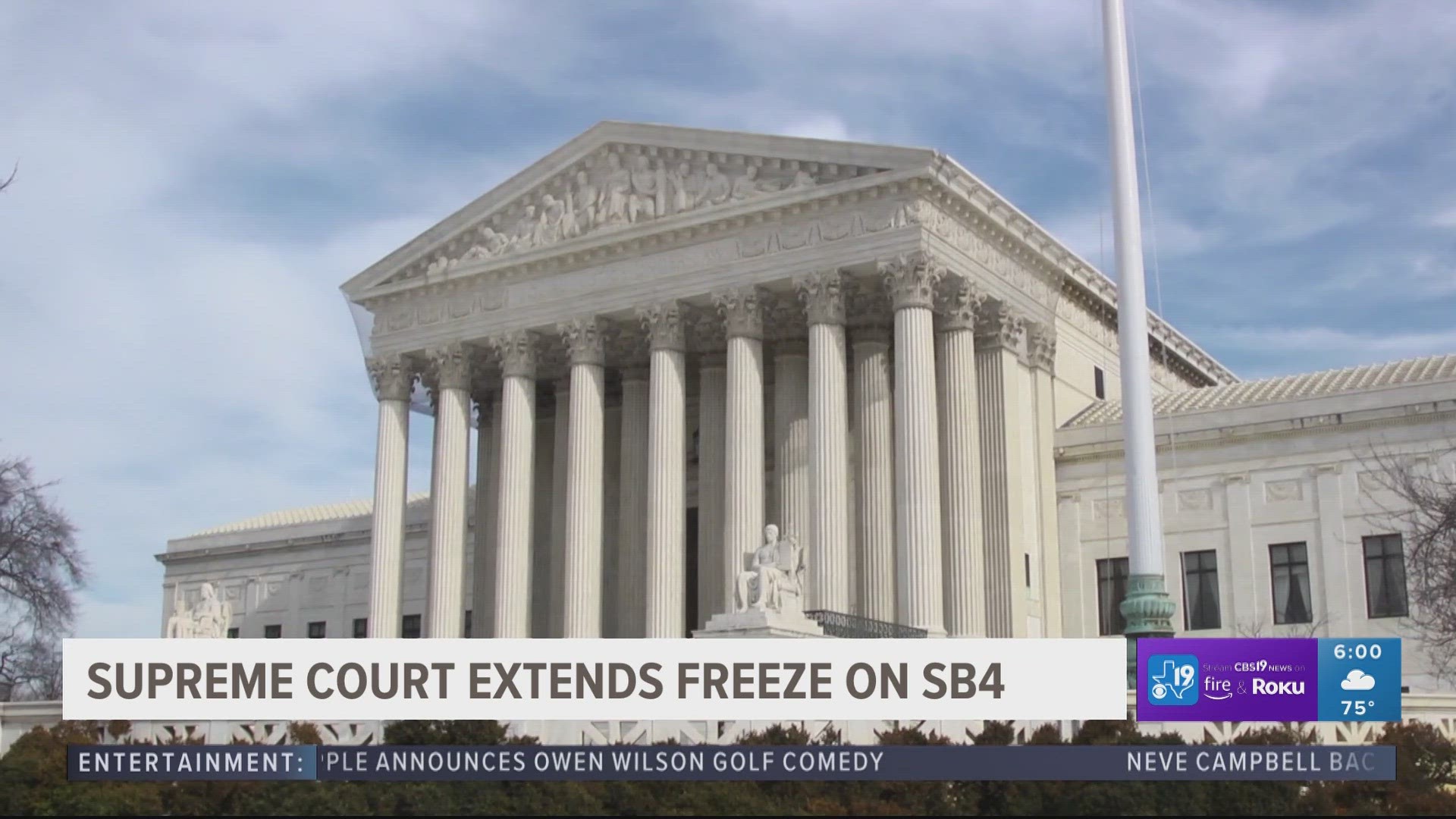TYLER, Texas — The U.S. Supreme Court has extended a temporary freeze on the enforcement of a controversial Texas immigration law.
Texas Senate Bill 4 would allow Texas police to arrest people suspected of illegally crossing the Texas-Mexico border. Now, instead of going into effect on Wednesday, the law is set to take effect on Monday, March 18.
Many across the state and in East Texas are worried about SB 4, but Tyler Police says there’s no cause for concern.
"It's not going to effect us at all. And that is more for the border cities that are battling, you know, with the problem that that they're concerned over there," Tyler Police Department community response officer Bianca Smedley said.
Smedley said that officers won't be asking for proof of citizenship during traffic stops.
"Our main priority is to establish that trust and communication within the city of Tyler, especially for the Hispanic community out there. We want them to feel safe, let them know that we are here to protect them and serve them as well" Smedley said.
Gilbert Urbina, assistant director of the Hispanic American Association of East Texas, said local police would be unable to enforce SB 4, even if they wanted to.
"They're not up to or capable of enforcing all those laws because they're not staffed enough. And it's hard to pursue," Urbina said.
However, if an officer can prove that someone entered the country illegally, it doesn’t mean that person is immediately deported back to their home country.
"The person is entitled to due process to go before a judge to ask for a bond, to ask for relief. So it's not something that's going to be immediate where a person gets arrested and then they find themselves in their home country," Urbina said.
The individual will likely attend multiple court dates -- a process that could extend over several months, if not years.
When it comes to asylum seekers, Urbina said the process could be faster.
"Congress needs to act. They really do. If they need to resolve this issue, they need to put in place the plan that was established earlier last year that President Biden had spoke about that he would sign," Urbina said.
The current plan involves hiring additional patrol officers along the border and recruit immigration judges to expedite the asylum process. This initiative aims to condense procedures that typically span six years into six weeks.
The U.S. Supreme Court has an extra week to consider whether the law should eventually be allowed to take effect. If they don't intervene, the law takes effect on March 18.

